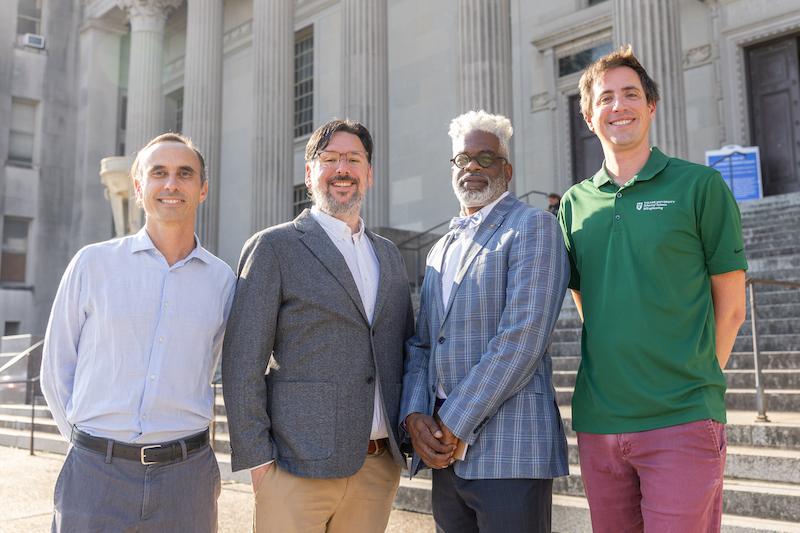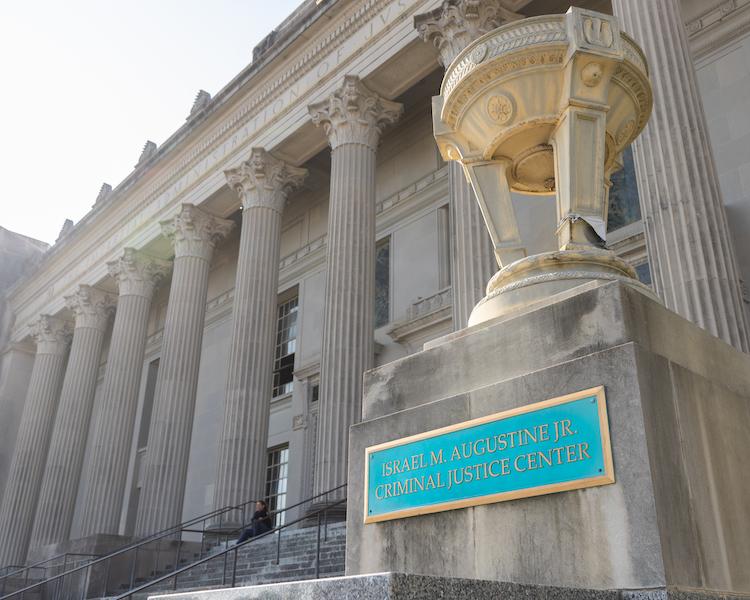Tulane researchers partner with Court Watch NOLA to boost criminal justice transparency
Tulane University researchers are working with Court Watch NOLA to use artificial intelligence to develop a data analysis platform to make the New Orleans criminal court system — and eventually legal systems nationwide — more efficient and transparent.
The three-year project is funded by a $1.5 million grant from the National Science Foundation. It will combine court records, volunteer observations from court proceedings and public records requests into a comprehensive database. Then using AI, the system will identify trends, anomalies and potential inequities in court proceedings.
"The findings could include changes in bond amounts, sentencing patterns or the impact of new policies,” said project lead Aron Culotta, a computer science professor at Tulane’s School of Science and Engineering. "Our aim is to enhance transparency and accountability in the criminal courts but to do it with careful consideration. We plan to engage in meaningful dialogue with all stakeholders and implement changes thoughtfully. We’re acutely aware that, at every stage of this process, we're dealing with real people's lives and experiences. We’re committed to balancing the need for systemic improvement with sensitivity to the human element involved in every aspect of the criminal justice system."
"We’re committed to balancing the need for systemic improvement with sensitivity to the human element involved in every aspect of the criminal justice system."
Aron Culotta, School of Science and Engineering
New Orleans, known for its high rates of incarceration and exoneration, lacks robust data infrastructure in its criminal legal system. Court Watch NOLA, the country's oldest court-watching organization, currently relies on hundreds of trained volunteers to monitor court proceedings and report key information only accessible through in-person observation.
This project aims to develop a program that automatically generates pre-filled forms with basic case information already available in digital format through the electronic docket. This includes case IDs, charges, defendant information and bond amounts, significantly enhancing efficiency in the process.
Tulane and Court Watch NOLA have been searching and reporting on more than 100,000 cases spanning 15 years from New Orleans Magistrate and Criminal courts. A prototype of the technology has found emerging trends in the court system through analysis of variables such as charges, bonds, court proceedings and case dispositions.
For instance, the system detected a spike in charges for carrying a concealed weapon in February 2023, indicating a focused effort by the police department to maintain public safety during that year's Carnival season. Additionally, by analyzing charge counts over time, the project uncovered changes in how specific charges were assigned to certain domestic violence cases.
The goal is to create a model that other jurisdictions can adopt for data-driven insights in criminal justice.
"We're building infrastructure to enable quick and effective data searches,” said Nicholas Mattei, assistant professor of computer science at Tulane. “New Orleans isn't unique in its lack of easily accessible court data, and we hope this project can serve as a model for other cities seeking to increase transparency in their criminal justice systems.”
Unlike systems designed to replace human decision-making, this project focuses on analyzing existing practices and making that information accessible to the public. Advanced AI techniques will extract key information from court documents and predict case outcomes, while also helping direct court watchers to high-priority cases.
“This project has the potential to dramatically reduce the time and effort required to keep the community informed about important developments in the court,” said Darrin Browder, executive director of Court Watch NOLA. “We are excited to see how the community will benefit from more transparent and accountable courts as a result of these advancements.”
The team will work with community stakeholders to ensure ethical data use and address concerns. They will establish a community advisory board and conduct regular public workshops.
Criminologist Andrea Boyles, associate professor of sociology and Africana studies at Tulane, and Andrea Armstrong, an incarceration expert at Loyola University in New Orleans’ law school, will assist the computer science team in ensuring the project addresses community-identified priorities and enables broader community participation in the criminal court system.
Boyles will address AI bias and its impact on the lives of Black and Brown individuals, particularly those involved in the criminal justice system. As a critical community researcher, her goal is to promote fairness and accountability in both AI and criminal justice systems.
Researchers hope to publicly launch the system in early 2026.
The project grew out of ongoing AI efforts at Tulane, including the Center for Community-Engaged AI and the Jurist Center for AI, which foster interdisciplinary research projects that empower communities to address societal challenges.


